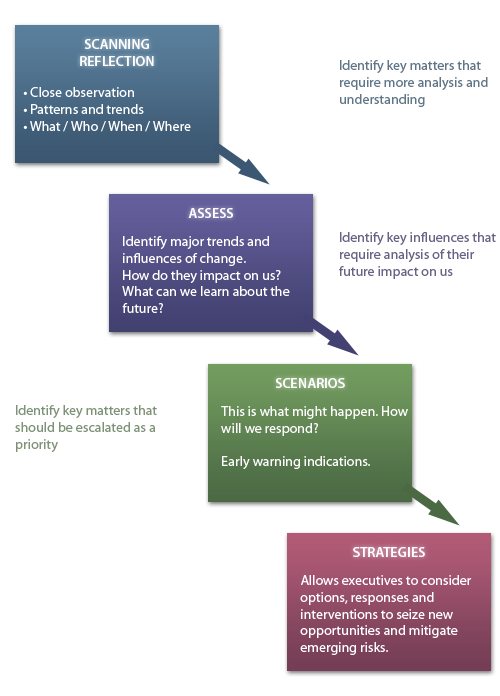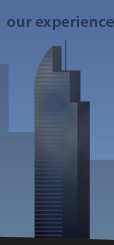Benefits of a Future Focus
"There are two main purposes of scenarios: one is to avoid regret and the other is positive and creative – to see new strategic options that you were previously not aware of."
Strategic planning is a learning exercise which always has a future orientation. While learning from the past is a time-honoured tradition, learning from the future and the sheer unpredictability of its nature demands new competencies and novel methodologies.
Scenario planning is a key management tool that delivers value to businesses, organisations and communities in many ways: robust strategy, change management opportunities, innovative business design, leadership and capacity building, stakeholder engagement, futures awareness, intelligence and news gathering.
We very much look forward to working with you.
Making Sense
Strategic surprise is always a consequence of discovering the unexpected relationships between seemingly unrelated sets of influencing factors.
Some of these will come from diverse places outside the immediate environment.
Scenario thinking allows participants in the process to step away from an examination of single influences and events and concentrate instead on the bigger picture of a complex world that these influences and events create.
You and your stakeholders will benefit from exploring the permutation in these relationships, studying their implications, and sustaining over time a strategic conversation that renders apparently chaotic uncertainties into a set of manageable opportunities leading to action.
The Future Imperfect
Wildcards are events which invoke a reaction of surprise, even shock. Earthquakes, tsunamis, 9/11, the GFC, a chance opportunity – these are the wildcards we had no idea were coming.
Predetermined Elements are influences shaping the future whose behaviour is the same in any world we might imagine. Topics such as s near-term demographics and levels of demand for staple products are examples.
Critical Uncertainties are those influences which we have thought about and which seem to be very important but whose outcomes (e.g. timing, size and nature) cannot be predicted. The impact of peak oil is one of these. So is climate change.
Business Intelligence

The Neville Freeman Approach
Knowledge transfer - we place strong emphasis on the professional development of participants who find their involvement stimulating, thought provoking and beneficial to their strategic thinking and decision making.
Made to measure - working closely with clients we fine-tune projects to meet their specific needs for timing, outcomes and budget . We do not design projects that include irrelevant process or content.
Making assumptions explicit - the rigor of the Learning QUEST™ requires the articulation and testing of assumptions made about the present and the ways we think the future will unfold.
We enable not dictate - lasting transformation is personal before it becomes collective, it takes place from the inside out.
Practical outcomes - the key point is that scenario learning is significant for its ability to promote strategic conversations which result in accountable actions - What, How, Who, When and With What






